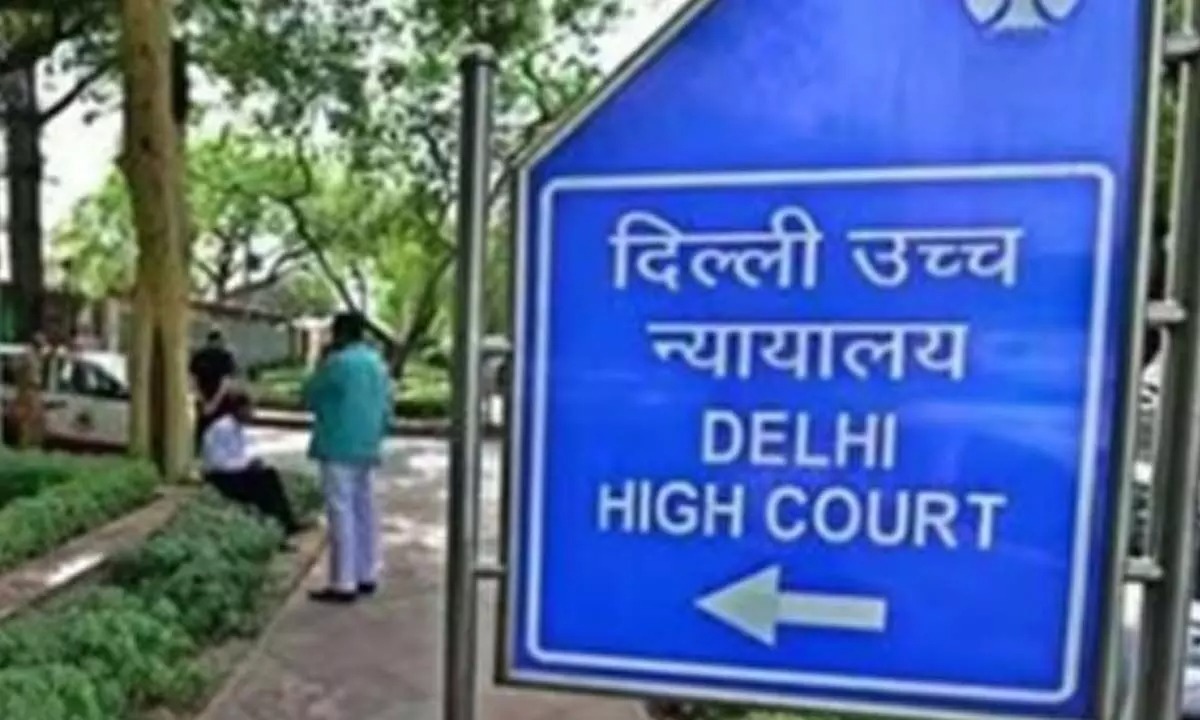D.B. Padhye, J.@mdashThe question raised in this revision application is whether if any proceeding under Order 21, rule 58 of the CPC involves issues which are required to be settled, decided or dealt with by any authority competent to settle, decide or deal with such issues under the Bombay Tenancy and Agricultural Lands Act, 1958, the civil Court has to stay the suit and refer such issues to such competent authority for determination.
2. The applicant obtained a compromise decree against the opponent No. 1 Abdul Munaf for the payment of the sum of Rs. 3,000 with interest. The amount was made payable by installments. Before the first installment was due, the judgment-debtor took proceedings under the Bombay Execution of Decrees (Temporary Postponement) Act, 1959 for the stay of execution. That application was rejected. The applicant thereafter filed an application for execution against the opponent No. 1 for realising the amount under the consent decree. During the pendency of these proceedings, the opponent No. 2 filed an application purporting to be one under Order 21, rule 58 of the CPC praying that pending his application, the sale be stayed. It was the contention of the opponent No. 2 that he had taken the field on lease from the opponent No. 1 three years before his objection and that he was a protected lessee of the said field long before the decree in the suit filed by the applicant came to be passed and had become a statutory owner of the property in question. He alleged that the property belonged to him and therefore, it cannot be attached and sold in execution of the decree against the opponent No. 1. This application under Order 21, rule 58, Code of Civil Procedure, was opposed by the applicant and the alleged tenancy was denied. The executing Court without making any enquiry referred the points to the tenancy Court for a decision as to whether the opponent No. 2 was a protected tenant and stayed the execution proceedings. It is against this order that the applicant has filed this revision application.
3. Main ground urged by Mr. Natu on behalf of the applicant is that the order of the executing Court referring the issues for the decision of the revenue Court is without jurisdiction as the provisions of section 125 of the Tenancy Act do not authorise such a reference being made. It is contended that it is only when such question arises in a suit instituted in a civil Court that the provisions of section 125 gives jurisdiction to the civil Court to stay the suit and refer such issues to the competent authority for determination. The further contention is that the execution proceedings is not a suit instituted in a civil Court as contemplated by section 125 of the Bombay Tenancy and Agricultural Lands Act and therefore, the reference is incompetent.
4. The word ''suit'' has not been defined in the Bombay Tenancy Act nor in the Code of Civil Procedure. However, a clue to the meaning of the word ''suit'' can be found by reference to the provisions of the Code of Civil Procedure, where this term has been given a meaning. Particularly, reference can be made to rule 1 of Order 4 of the CPC which states "Every suit shall be instituted by presenting a plaint to the Court or such officer as it appoints in this behalf". From this provision, it is apparent that a suit has to be initiated by the presentation of a plaint to a civil Court and when such a proceeding is initiated, that proceeding is a suit. An execution application for executing a decree of the civil Court is not initiated by the presentation of a plaint, as the word is normally understood. Execution application is an application made to the Court for working out the rights given in the decree, whereas by the initiation of a suit by filing of a plaint the rights between the parties have got to be determined. The other provisions in the Code of Civil Procedure, namely, those in Order 5 and at many other places give a similar clue. In the Bombay Tenancy Act itself section 125 makes a reference only to the suit itself and not to any other proceeding and that too a suit instituted in any civil Court. In section 127 of the same Act, words used are: "No suit or other legal proceeding." The Act, therefore, itself makes a distinction between a suit which is normally understood to be a proceeding instituted by the presentation of a plaint and other legal proceeding. The word ''suit'', therefore, used in section 125 of the Act would not include an execution proceeding which is filed under Order 21 of the Code of Civil Procedure.
5. It is no doubt true that the word ''suit'' may assume different colours in different context. In some cases a wider meaning to the ''suit'' could be given; in others a restricted meaning could be given. That will depend, however, upon the provisions and the intent of a particular Act. A similar question arose in a decision of the Division Bench in Khairunnissa v. Municipal Corporation, Bombay 1966 Mh. L J 334 in which the provisions of the Bombay Municipal Corporation Act, 1888 were under examination. In dealing with the question, the Division Bench has observed in paragraph 8 of the aforesaid report as under:
It is obvious, therefore, that, so far as the CPC is concerned, the word "suit" means a suit instituted in a civil Court by the presentation of a plaint, and it would not be possible to call any other proceeding a suit even if it is a proceeding instituted in a civil Court, if it is not done by a plaint.
At one time a view was taken that an execution proceeding can be regarded as a suit. Such a view was taken by this Court in Manjunath Badrabhat v. Venkatesh Govind Shanbhog I L R 6 Bom. 54. The question involved there, was, whether a decision in the execution proceedings operated as res judicata in a subsequent suit and whether the provisions of section 13 of the CPC applied. This case, however, did not hold good after the decision of their Lordships of the Privy Council in Ram Kripal Shukul v. Mst. Rup Kuari 11 I A 37. This was how the Division Bench dealt with this matter:
In Manjunath Badrabhat v. Venkatesh Govind Shanbhog I L R 6 Bom. 54, the question that fell for consideration was whether a decision in execution proceeding would be res judicata u/s 13 of the Procedure Code, Act X of 1877. While considering this question, the Court, in view of the fact that the decision u/s 47 corresponding to section 244 of the old Code was deemed to be a decree, held that the execution application must be regarded as a suit and the decision thereon as in a suit. Holding so, the Court held that the principles of res judicata u/s 13 of the Code applied. In this connection, another decision also on the question as to whether a decision in execution proceeding was res judicata was referred to before us, where it was held that an execution proceeding was a suit within the meaning of that section. In view of the subsequent decision of the Privy Council in the case of Ram Kripal Shukul v. Mst. Rup Kuari 11 I A 37, it is difficult to hold that the reasoning given in these cases still holds good.
6. The question in the case before the Division Bench arose as to the meaning to be given to the word ''suit'' used in the Bombay Municipal Corporation Act and while dealing with the Act the Division Bench construed the word ''suit'' as meaning a proceeding which is initiated by the presentation of a plaint and that it could not have a wider meaning. The Division Bench has observed:
As decided in Hansraj Gupta, the ordinary meaning of the word "suit" as commonly understood in a proceeding which is commenced by the presentation of a plaint. There is nothing in the Act to suggest that word "suit" should have a wider meaning. On the contrary section 617 (Bom. Municipal Corporation Act) indicates otherwise. Clause (g) of sub-section (1) in terms refers to a suit or other legal proceeding brought against the Corporation or against the Commissioner or other officers. Similarly, clause (g) also refers to a suit or legal proceeding brought against the Corporation or against any of the named officers. When the Act itself makes this distinction between a suit and a legal proceeding, there could be no justification for us to construe the word "suit" in the wider sense conveyed by its dictionary meaning. We must, therefore, having regard to the fact that it is a section which restricts the ordinary and normal right of a citizen, give it the ordinary meaning in preference to the wider dictionary meaning of the word "suit".
7. Similar reasoning applies to the present proceeding. In section 125 of the Bombay Tenancy Act, the words used are "Any suit instituted in any civil Court" and the ordinary restricted meaning which could be given to these words would be a proceeding initiated in a civil Court by the presentation of a plaint and this is the meaning which could be attributed to the word "suit" in section 125 would further be clear from the perusal of the provisions of section 127 of the Bombay Tenancy Act which is an indemnity provision and where the words used are "No suit or other legal proceeding" as in the Bombay Municipal Corporation Act. The Bombay Tenancy Act, therefore, has itself made a distinction, as in the Bombay Municipal Corporation Act, between a suit and other legal proceeding. In view of this the word "suit" in section 125 of the Bombay Tenancy Act must be given only the restricted meaning which is given to the word "suit" in Order 4, rule 1 of the Code of Civil Procedure, which means a proceeding instituted in a civil Court by the presentation of a plaint. Since the objection under Order 21, rule 58, Code of Civil Procedure, filed in this case by the opponent No. 2 is not and cannot be said to be a suit, the provisions of section 125 of the Bombay Tenancy Act do not authorise the Court to refer the issues for a decision of the revenue Court. The reference, therefore, made by the learned trial Judge was without jurisdiction and has to be set aside.
8. The revision application thus succeeds and the trial Judge will now recall the reference made by him to the Revenue Officer and decide the proceeding before him in accordance with law in view of the observations made above. The applicant will get his costs.

